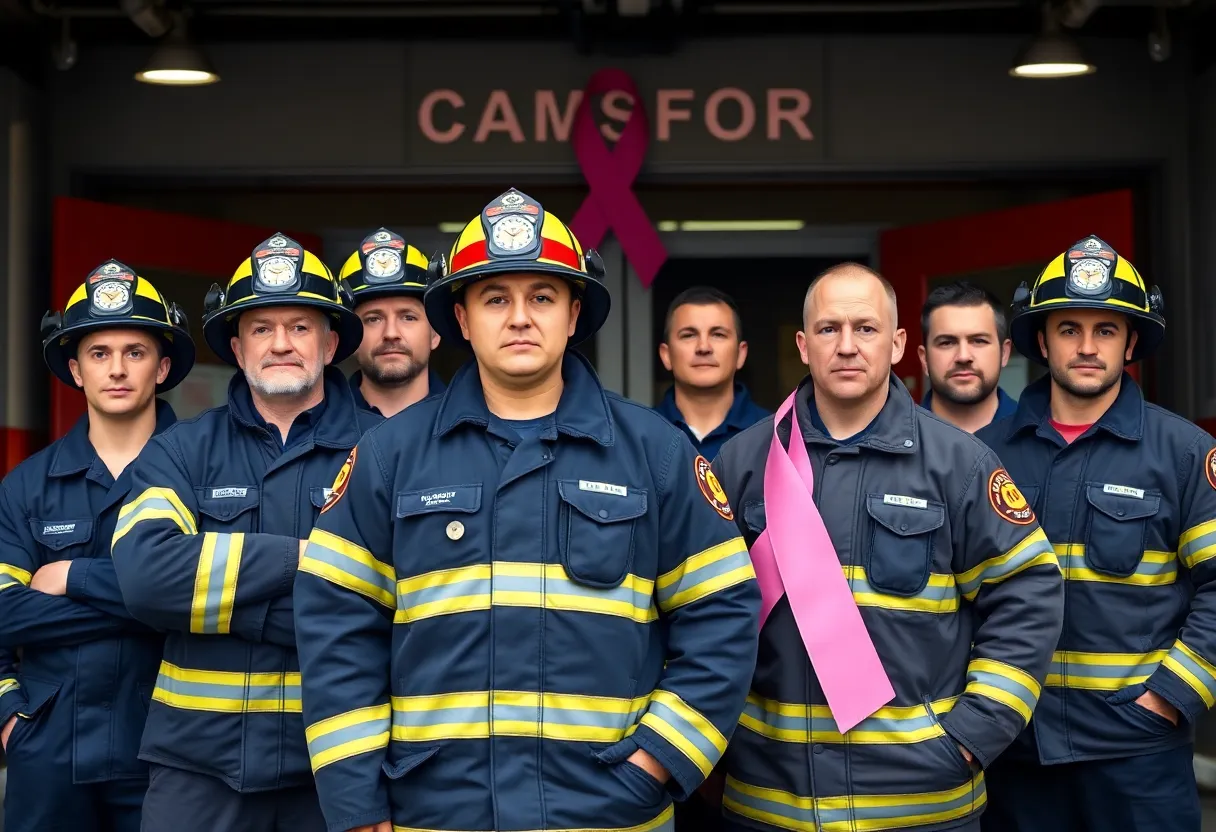News Summary
House Bill 97 seeks to expand cancer benefits for North Carolina firefighters, aiming to recognize additional cancer types linked to their profession.
House Bill 97 Aims to Expand Cancer Benefits for Firefighters in North Carolina
In a significant step toward enhancing the welfare of firefighters, House Bill 97 is making its way through the North Carolina General Assembly, aiming to expand death benefits for firefighters diagnosed with cancer. Presently, the state offers benefits exclusively for six specific types of cancer, including the deadly mesothelioma, yet firefighters are advocating for broader recognition of the occupational hazards they face daily.
The Current Landscape of Cancer Benefits
Under the current guidelines, benefits are only provided for diagnoses of six types of cancer: mesothelioma, testicular cancer, cancer of the small intestine, esophageal cancer, oral cavity cancer, and pharynx cancer. House Bill 97 seeks to add stomach (gastric) cancer to this list. This proposed extension is crucial given that the rigors of firefighting expose these professionals to carcinogenic substances. If the bill passes, it will mark a significant milestone in recognizing the increasing cancer risks firefighters encounter while putting their lives on the line.
Support from the Firefighter Community
Firefighters are rallying for comprehensive cancer coverage, advocating for the inclusion of all types of cancer linked to their high-risk profession. Leaders within the North Carolina Firefighter Cancer Alliance have stressed the importance of preventive measures such as cancer screenings in tandem with expanding benefits. The emotional toll of cancer is palpable, particularly as its prevalence escalates among firefighters, who frequently confront the stark reality of losing colleagues and loved ones due to the disease.
The Bill’s Progress and Financial Implications
House Bill 97 has already cleared its first reading in the House and is now heading to the committee stage for additional scrutiny and discussion. The legislation aims to formally recognize deaths from stomach cancer as occurring “in the line of duty.” If approved, it will enable affected families to qualify for vital death benefits, significantly easing the financial burdens associated with such losses. The proposed budget allocates $500,000 annually from the state’s General Fund for the 2025-2027 fiscal years to cover these new benefits, indicating a serious commitment to supporting the firefighting community.
What the Future Holds
While the potential benefits of House Bill 97 are noteworthy, the intended effective date for this legislation is July 1, 2025. Importantly, the bill will only apply to qualifying cancer-related deaths that occur after this date. In addition, another Senate bill is currently under consideration, which aims to provide a modest increase in pensions for firefighters and improve representation across the state.
Governor Roy Cooper has recently signed a new law aimed at cancer protections for firefighters, establishing an initial benefit of $37,000 for the first diagnosis of cancer and $74,000 for a second diagnosis. This new legislation notably extends protections to retired firefighters within a ten-year frame, who were previously excluded from temporary protective measures.
Navigating the Road Ahead
According to advocates, these legislative moves position North Carolina among states with the best presumptive cancer laws for firefighters nationwide. The testimonies of families impacted by these diseases reveal a bleak financial landscape characterized by overwhelming out-of-pocket medical expenses. The implications of the proposed legislation extend far beyond financial benefits; they reflect a commitment to safeguarding the lives of the next generation of firefighters who continue to face elevated occupational cancer risks.
As the legislative process unfolds, the firefighter community watches closely, hoping for a significant shift that adequately addresses the unique challenges presented by their profession. The battle against cancer is not just a fight for benefits; it is a fight for recognition, dignity, and a healthier future for those who risk their lives to save others.
Deeper Dive: News & Info About This Topic
HERE Resources
Family of Former Builder Seeks Answers After Mesothelioma Death
Asbestos Alert: Fly-Tipping Strikes St Ives Cemetery
One Housing Uncovers Over 800 Asbestos Record Failures
Veterans Still Struggling with Asbestos Exposure After Decades
The Hidden Danger Lurking in Older Buildings: Asbestos Awareness in Renovation Projects
Terminal Battle Against Mesothelioma: A Story of Resilience and a Call for Justice
The Controversial Legacy of Peter Angelos Unveiled by FBI Investigations
Johnson & Johnson Faces Legal Turmoil Over Talcum Powder Asbestos Claims
The Asbestos Litigation Crisis: A Heavy Toll on Small Businesses in California
Contractor Sentenced to 10 Years for Asbestos Fraud and Elder Abuse



















